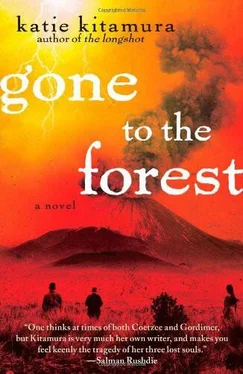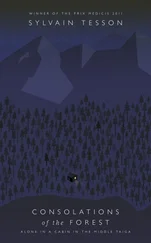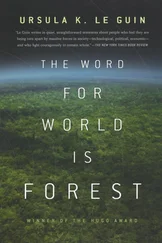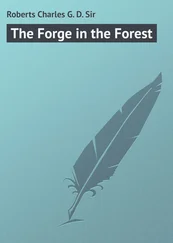Tom’s own body collapsed under its weight. He called out to the men again.
“Here! He is here!”
They arrived from all sides, like an ambush: men emerging from the swirl of ash. They surrounded the father and son. They were grainy silhouettes, dark shapes against the white cloud and dim light. They carried the electric torches pointing downward and they looked like billy clubs at their thighs. Their heads wrapped in shirts and scarves. Tom thought he saw Jose standing at the back of the group. He called out to him.
The call died in his throat. He saw Jose lift his hand as if to stay the men. They stood in a circle and did not move. Fear seized across Tom’s throat. They would die here — it was the most obvious idea in the world. The natives turning on them at last. They would be left to perish in the ash storm. They would suffocate on their own land. A stupid death looking more and more likely as the men gathered and did nothing.
The idea of their resentment never occurred to the old man. Even though there had been incidents — servants killing their own masters in the night, nannies slaughtering their wards — of which the old man was aware. His father’s power was too absolute for imagination. Tom, on the other hand, could imagine their resentment with ease. He was aware of how little the natives liked him. In an instant he was flooded with fear. It warped his sense of things and in particular time. It made a second or two seem much longer and it made him hysterical without cause.
He wondered if it would give the men pleasure to watch the two of them die. He thought it would. He couldn’t see how it wouldn’t. That was the last thought that crossed his mind. Then his throat closed and his consciousness gagged with the strain. He was seized, a cloth pulled across his face to protect his eyes and mouth and nose, all of which were burning. Through the cloth he could hear shouts and see the whirl of ash moving fast past him.
They carried Tom and his father back to the veranda. They dropped them on the floor, in separate piles of ash — it was everywhere, in giant drifts and piles, all across the room — and then set to work pulling the storm doors closed. They moved very quickly. Eyes shut, Tom’s fear dissolved and he was once more comforted by the presence of the men. He did not see the look that passed between them. He recovered his breath, lying still in the bed of ash.
The men pulled the storm doors into place and the house was plunged into darkness. The whisper of ash outside. In places the bobbing of the electric torches, the flicker of flame as the lamps and candles were lit. Tom wiped the ash from his face and sat up.
He saw Jose, kneeling beside the old man. He cradled the old man’s body in his arms and carefully cleared the ash from his face. The other men ran their hands down his limbs, checking for breaks and cuts. The women were not far behind, they came with cloths and bowls of water and they began wiping the man clean. They were preserving something without even knowing it, not understanding the consequences, as they worked over the old man and brought him back to consciousness.
Tom thought: the old man will live forever because they will it. Only because of that. He felt a throb of jealousy. To be cared for in this way. To be touched. In between the candlelight they moved. One of the women came to Tom and gently pushed him back to the ground. He lay in the bed of ash. She dipped a cloth in water and wrung it out slowly.
The sound of water dripping. She said to him the generator has been clogged by the ash. It is no longer working. But the old man is fine. The old man was safe. Tom nodded. She wiped the cloth across his face and said nothing further. She wiped around his mouth, his forehead. Down his arms and the flakes of horned skin. She cleared the grit from his eyes. He saw Jose, giving orders, organizing the men. He closed his eyes. He lay back. He waited, for now.
Two weeks later, his father leaves the farm, taking Jose and the girl with him.
Jose is loading a wagon full of trunks. The girl sits in the wagon bed, wrapped in a shawl. She is propped up on pillows and there is a carafe of tea by her side and an open tin of lobster. She stares straight ahead, eyes blank and cloudy. Her fingers work the fabric of her dress and she trembles very slightly. The weather has changed in the weeks since the volcano exploded.
Jose loads the wagon and his father watches. The old man is wearing a three-piece suit for traveling. A watch and chain and his wallet heavy in his pocket. He is bare headed. He looks and then goes to the girl. He pulls a blanket across her lap and tells her to eat the lobster. She nods and reaches for the tin. Fumbles with a fork and then eats it with her fingers.
His father smokes a cigarette. Jose throws rope across the heap of trunks and valises. He pulls the rope tight and the wagon rocks and creaks. They pile more trunks in. The girl’s things. She has been changed but there is still the matter of her trinkets and her objects, pilfered from his mother’s wardrobe. They drag behind her, she is barely aware of how they drag behind her. While his father is in the habit of traveling light. Never more than a single suitcase and now look at him.
Two weeks. Two weeks and he has decided to leave. He has split himself from the land, a cleaving formerly thought impossible, a separation still difficult to imagine. But now the wagon creaks with the load it carries, there is a wagon heavy with possessions, the old man is leaving like the other whites — and Tom is staying behind.
IN THE PAST two weeks Tom’s fear had grown as the valley recovered and the old man’s face grew quiet and watchful. The ash was cleared from the pastures and shoveled from the roofs of the houses. The natives hauled it away in wheelbarrows and made giant heaps on the edge of each village. Then the sky was clear and only the ash heaps stood like obscure markers to the storm.
But on the farm: a record of ongoing catastrophe. When the fish began to float in the river, Tom saw the inverse to everything: the fishing, the food on the table, the money. Everything that had drawn the girl to them in the first place. The dreamlike arms and legs of the river farm, which sat useless in the water, corralling fish that were going nowhere. As the bodies gathered they added pressure and weight until the legs creaked and cracked and then broke.
As soon as the ash stopped the old man sent the natives into the river to retrieve it. They listened to him give the order and stared into the water. They didn’t move. They stared at the mass of rotting flesh and turbid sludge. Then they looked at him as if to say: if that was what he ordered (it was). If that was what he wished (it was). They stripped down to the waist and stood on the banks of the river. They waited to see if he would change his mind. He didn’t and they tied cloths around their faces and dropped into the water.
They began moving at once. Standing waist deep in the river, they used their hands to push the bobbing fish away. They moved in the direction of the river farm and then fanned out to circle the apparatus. Their faces impassive behind the cloths. Slowly they surrounded the apparatus and then reached for the legs, which were slippery with muck and rot. They turned to pull it toward land.
The apparatus did not move. The fish were too deep in the water. The men were pushing their own legs through the layers of dead fish. They were squeezing through the wall of bodies. Moving in its crevices. They pulled again. The apparatus remained immobile. Their grip slipped on the legs and the machine sank down into the water.
They called to the men watching on the riverbank. They stripped down and plunged into the water. They shouted for rope, which they tied around the legs of the machine. They sent the lightest man to do it. He lay sprawled across the machine, moving from leg to leg, tying knots around each joint. Then he gave a shout and dropped back into the water. He shouted again and they threw the lengths of rope to the men still standing on land.
Читать дальше










